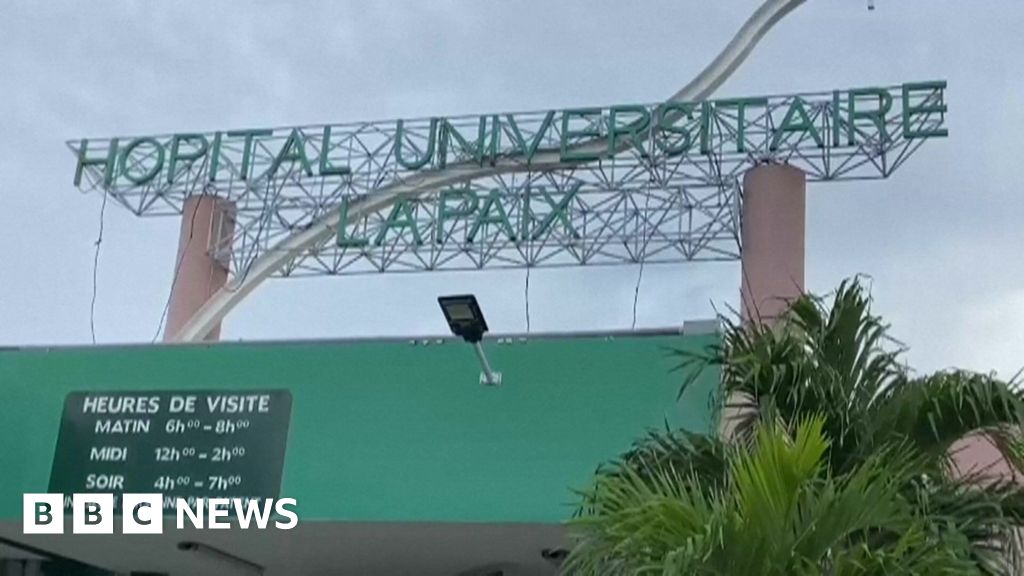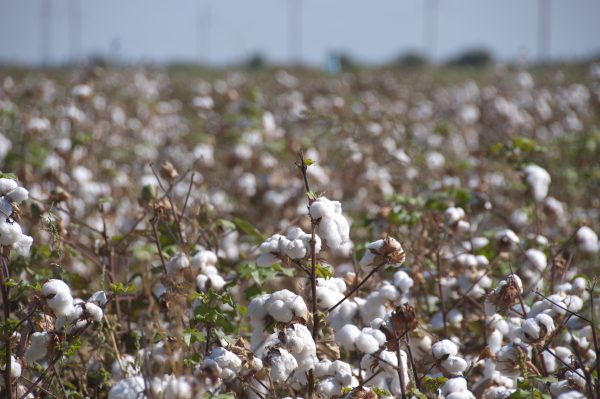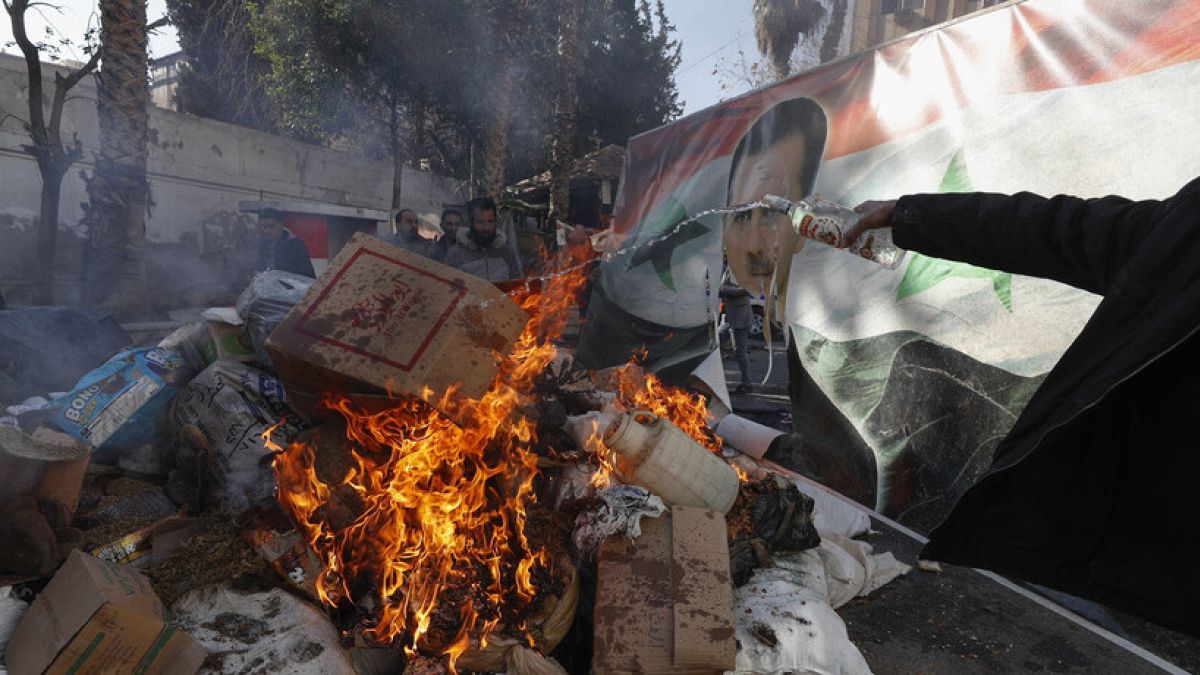Italian Prime Minister Giorgia Meloni’s final rally last week ahead of the European elections was déjà vu through a softened lens.
When campaigning for national Italian elections in late 2022, Meloni stood in the same historic Piazza del Popolo in Rome. There, as leader of Brothers of Italy, a once-outlier party with neo-Fascist roots, she railed against the left, migration and a European Union she said was intent on destroying Europe’s Christian identity. Shortly after, she became Italy’s first female prime minister.
A year and a half later, Meloni’s look is more polished, her tone more measured, her approach more personal: she’s encouraging supporters to think of her simply as “Giorgia” and to write her first name only on the ballot.
And, as Italians join citizens from 26 other countries to elect a new EU parliament, Meloni is displaying the same political acumen and patience that saw her rise from the margins to centre stage in Italy, and transformed her into a power broker in the EU.
“She could be pivotal,” said Lorenzo De Sio, a professor of politics at Luiss University in Rome, “instrumental in [forming] the majority in the EU parliament and reinforcing the fact that she’s not so much an outlier anymore.”
From Thursday to Sunday, some 373 million eligible Europeans are voting in 27 EU bloc countries, electing the next European parliament, with 720 seats allotted proportionately to member countries’ population. It’s one of the biggest democratic elections in the world, second only to India, with support for Ukraine to fend off Russian aggression and climate change policy hanging in the balance.
Europe is shifting to the right, with polls showing populist and hard-right leaders such as Hungarian Prime Minister Viktor Orban, France’s National Rally leader Marine Le Pen, Geert Wilders’s Dutch Freedom party and the Freedom Party of Austria expected to do well.
With their disdain for EU rules and climate change measures, they align closely with Meloni’s outlook — except on one key issue: Russia’s invasion of Ukraine.
While many of Meloni’s Brothers of Italy party members are pro-Russia, Meloni herself has proven to be a stalwart supporter of Ukraine.
Teaming up with Meloni?
Consequently, Ursula von der Leyen, the president of the European Commission who has made it clear she will not work with Orban and the likes, says she would team up with Meloni — putting the Italian leader in position to become queenmaker.
“She is clearly pro-European, against [Russian President Vladimir] Putin, she’s been very clear on that one, and pro-rule of law,” von der Leyen said last month during an election debate. “If this holds … then we offer to work together.”
Already the two have worked together to seal controversial deals between the EU and North African countries to block migrant departures.
If Meloni were to back von der Leyen’s centre-right European People’s party (EPP), the choice would be one to calm markets and protect Italy’s more than $300 billion Cdn in EU pandemic recovery funds, the lion’s share of EU help.
Instead, going with the hard-right would be a decision to keep beating the drum of Europe’s Christian identity, “traditional” families and national sovereignty over EU regulations.
While Meloni has hinted she may back von der Leyen, she’s also deftly straddled the two sides: she still has Orban’s ear, but she has also distanced herself from her party’s neo-Fascist roots.
‘Doing exactly what she promised’
While her support for Ukraine and willingness to work with the EU give her sway, observers say it also gives her a free pass to implement a political agenda at home counter to European values.
“While she performed a U-turn in foreign policy, in domestic politics, she’s doing exactly what she promised,” said Cecilia Emma Sottilotta, a professor in Italian politics at the University of Perugia for Foreigners.
Meloni’s right-wing coalition government has passed laws that allow abortion opponents into health centres that offer the medical procedure and that curb 2SLGBTQ+ rights; it’s limited the independence of prosecutors and appointed loyalists to top jobs at the state broadcasters, prompting a strike from journalists who accuse her of turning the outlet into a government mouthpiece.
“She’s Berlusconi 2.0,” said Di Sio, of the late controversial former prime minister Silvio Berlusconi, who as a media mogul long controlled Italy’s private and public broadcasters, “except she has the advantage of playing better on the international scene. In a way, she’s buying external support … and more tolerance of what happens in Italy.”
That will only carry her so far at home, though, said Di Sio.
Meloni has made no inroads in reversing Italy’s birth rate, one of the lowest in the world, or in shrinking its massive public debt, expected to overtake Greece by 2028 as the EU country with the biggest debt, at 143.7 per cent of the GDP.
Testing the reactions of Italians
Despite promises to reduce poverty and put an end to the arrival of migrants by sea, with highly contested plans to outsource camps to Albania, poverty rates remain steady, with migrants crossing down the first months of 2024 after a sharp, prolonged rise in 2023.
In Italy, the result of the EU elections is a way politicians gauge how Italians are reacting to their mandate, said Sottilotta.
“When it comes to EU elections, Italian politicians see them as an opportunity for visibility and at the end of the day it’s an unofficial opinion poll on how a government is doing,” she said.
Most recent polls show just above a quarter of Italians support Meloni, the same percentage her party received in 2022 in national elections, with the lowest voter turnout on record.
A centre-left that has failed to appeal to voters beyond its historic core has helped keep Meloni afloat. So, too, say observers, has Meloni’s shape-shifting from a bombastic extremist to someone who presents herself as a friend, as simply “Giorgia,” as many of her supporters call her.
“In EU elections, Italian party leaders don’t put their names on ballots to try to reach as many voters as possible, they do it to mobilize party members to vote,” said Lorenzo Pregliasco of YouTrend polling company.
“And it’s a strategy that’s proven more effective with right-wing parties like Brothers of Italy than the centre-left.”
A strategy, that if effective, could put Meloni in the driver’s seat in an EU she once urged to bring down.





















Discussion about this post